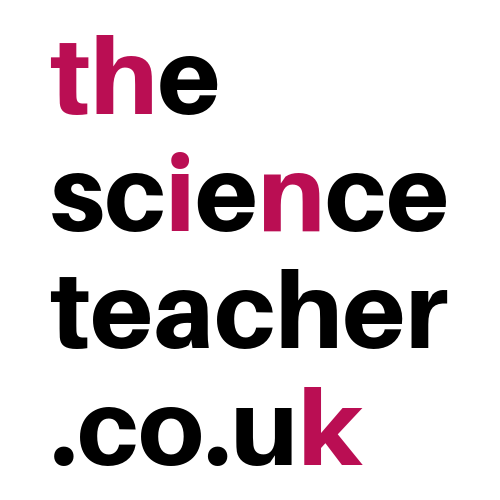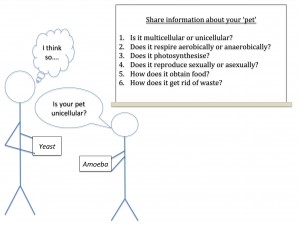Oracy for science
There is a fantastic quote from James Britton, who said: “Reading and writing float on a sea of talk”. If students are to develop scientific literacy, they need the opportunity to first speak and listen to each other. Dialogic teaching, as developed by Robin Alexander, harnesses the power of talk to stimulate and extend students’ thinking. Here, language is not simply a tool to convey information from teacher to student. It instead forms an invaluable part of the learning process.
Students need the opportunity to talk if they are to construct meaning in science. Below are some ideas to get your students talking in science.
Supporting students to ask questions in science
Encouraging students to ask questions in science. This activity encourages students to develop their oracy by asking questions. A student sits at the front of the class with their back facing the board. A key word is written on the board by the teacher or a class member. The student must ask a series of questions to determine what the word is. (PDF)
Using key words in science
![]() Supporting students to use key words in science. Key words used to describe atomic structure are written on the board. You could use key words from any topic. Students come up with a list of questions that their partner must answer by using the key words written on the slide. This activity promotes good discussion between students and supports meaning making of key terms. (PDF)
Supporting students to use key words in science. Key words used to describe atomic structure are written on the board. You could use key words from any topic. Students come up with a list of questions that their partner must answer by using the key words written on the slide. This activity promotes good discussion between students and supports meaning making of key terms. (PDF)
Promoting small group discussion in science
Promoting discussion between students in your science class. Students research a ‘pet’ organism. They meet with other members of the class to discuss their ‘pets’ and exchange answers to questions written on the board. This activity supports students to practice and develop their oracy. It can be easily adapted for a variety of topics and abilities. This activity is based on an idea by Sophie Metcalf. (PDF)
Concept cartoons are fantastic resources that helps teach key concepts in science. Concept Cartoons present learners with their own misconceptions (and alternative conceptions) that generate discussion and argument.

